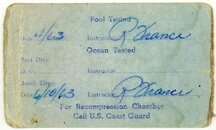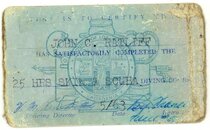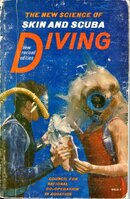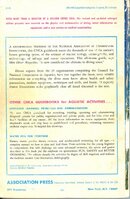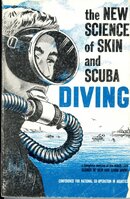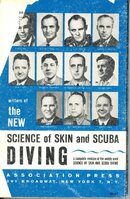When I joined my university "sub-aqua" club in the mid-1960s, the first pool session ended with the appearance of a well-dressed man with a slightly "spivvish" demeanour. For those who don't know what a "spiv" is, it's a World War II vintage British expression for a black-marketeer, who used to be attired like this before revealing his armful of "dodgy" wristwatches to an interested client:

Anyway, he had a good selection of Typhoon fins, masks and snorkels, which was, and remains, a very good British brand in underwater swimming equipment. We all ordered a set of basic gear and we were allowed to try out the masks and fins in the pool to check that they fitted. We placed our orders and he departed, returning the following week with our purchases. We never saw him again. One of the novice divers spoke up to ask the session supervisor for more information about the seller. "Oh, he runs a clothes store in town, specialising in lurid neckties" was the response. It took all sorts back then to purvey snorkel gear to the public. Others might have stocked up at their local Woolworths. Specialist diving equipment stores were pretty thin on the ground back in the 1960s. My home town of Newcastle had a motor-cycle dealership with a sideline in diving gear. We envied London, which had Lillywhites, a 5-floor sports equipment store in Piccadilly Circus that issued from the early 1950s an annual mail-order diving gear catalogue to drool over:

Sadly, the store is a shadow of its former self nowadays selling, like most sporting goods stores hereabouts, mainly athletic-looking clothing to people who never look as though they ever do any exercise but like the "sporty" look as streetwear. Last time I visited there was little or no diving gear beyond a handful of plastic-encased snorkel kits.
Returning to the subject of training manuals for apprentice divers, we knew nothing in the 1960s of American books such as "The (New) Science of Skin and Scuba Diving". UK divers belonged to one of the constituent local clubs of the British Sub Aqua Club (BSAC), which is still going strong. From the 1950s onwards, the BSAC published a diving manual like this:
and updated it very regularly. I have several editions.



